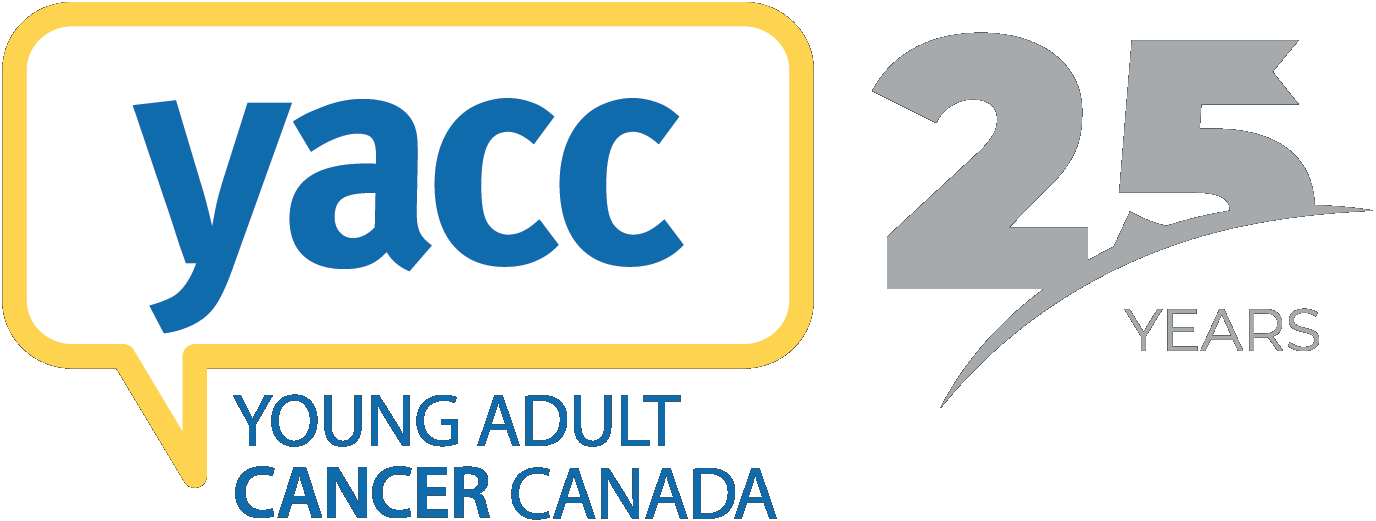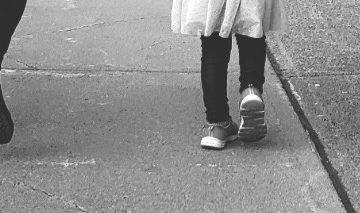Three days after my 20th birthday, I ran to the first hair salon I could find. Sitting down, I told the stylist to cut my long blonde hair to just below the chin. She looked at me, confused, and asked why I would even consider cutting close to 12 inches of hair. “I was just diagnosed with cancer.” That was enough.
She got out her scissors and awkwardly tried to chit-chat around the bomb I had just dropped. I sat quietly as she cut my hair, unsure of what my future would hold. I cried as she swept away what I’d always thought was my best feature. Ironically, despite the countless surprises I’d face in the coming months, not losing my hair was one of the biggest.
Let’s rewind back to July 19, 2013. Diagnosis day.
I was sitting in a small room with my mother and my boyfriend, Collin. The doctor came in with my file, ready to discuss the results of a fine needle aspiration from the previous week. He took a moment before looking up at us, then began to explain that the results of my biopsy showed significant characteristics of papillary thyroid cancer. He looked me in the eyes and assured me, “Don’t worry, this is the good cancer! If you’re going to get any type of cancer, this is the one you want to get.”
My doctor went on to explain the necessary surgical procedure — my first. I would have a hemi thyroidectomy, and should the pathology results confirm their suspicions, I would require additional surgeries and a lifetime of synthetic thyroid hormones to keep my body functioning.
What he did not explain was that cancer can be treated in a variety of ways. Until that point in my life, I had believed cancer was everything I saw in the media. The bald heads, the radiation tattoos, the ports and the PICC lines, etc. This is what brought me to the salon that day. I thought “if I cut my hair off now, it will be easier for me than it will be later, when it’s no longer a choice.” But that day never came.
After pathology confirmed our fears, I went to the local cancer centre to meet with my surgeon and my radiation oncologist. This meeting, 12 weeks after my diagnosis, was the first time that my treatment would be laid out for me in full.
As is typical of most thyroid cancer patients, I was treated with Radio Active Iodine Ablation. Luckily for me, this treatment had few side-effects at the time of completion. It took another dose and several years for me to begin to feel the effects of the ablation. This came in the form of frozen salivary glands, eye issues, and loss of taste.
 What troubles me the most about my whole experience is that there are an awful lot of people — medical professionals, fellow cancer patients — even other thyroid cancer patients! — who believe that simply because of where my cancer was located, and because of the fact that I did not undergo the typical forms of cancer treatments, that my experience is somehow less valid in comparison to someone who has undergone the whole nine yards.
What troubles me the most about my whole experience is that there are an awful lot of people — medical professionals, fellow cancer patients — even other thyroid cancer patients! — who believe that simply because of where my cancer was located, and because of the fact that I did not undergo the typical forms of cancer treatments, that my experience is somehow less valid in comparison to someone who has undergone the whole nine yards.
Not all cancers are treated the same way; some are treated with chemo, some radiation, some with interferon, some radioactive iodine ablations, some with immunotherapy, some with cryoablation, some with some combination of the above, etc. But regardless of the type of therapy, these therapies are all treating cancer. So why is there the idea that some are more valid then the others?
From diagnosis, I knew that the five-year survivability rate for thyroid cancer was 98 per cent. Even so, that number offered me no comfort. When I thought of the word “cancer,” I thought of death. Today, years later, I still struggle with the depression, the anxiety, the paranoia, and the anger that cancer brought to my life. I still struggle with thoughts and questions of mortality.
Through Young Adult Cancer Canada (YACC), I met a widespread group of ladies who were also diagnosed with thyroid cancer. We recently had a discussion on how toxic terminology has affected our overall well-being. The phrase “the good cancer” has had a profoundly negative impact on the way that I have experienced my own cancer journey. In speaking with other thyroid cancer patients, I’ve learned I am not alone.
When I first joined YACC, I struggled with the idea that perhaps I didn’t belong in a support group for cancer patients. After all, my doctor told me this “good cancer” was more like “a very bad cold” and that “it shouldn’t really be called cancer.” Did I need peer support if my cancer wasn’t really that bad? Would I have anything in common with the people in this group? Was I just being overdramatic about my illness?
Looking back on all of those thoughts, I can see how unhealthy they were, and I can see just how much the doctor’s words shaped how I saw my own journey. Lately, I have begun to question how many other cancer survivors, specifically thyroid cancer patients, are feeling the same way. I recently posed a series of questions to 15 of my thyroid cancer peers (11 of whom responded), and this is what I learned:
Were you told by a medical professional that you have “the good cancer”?
All of those who have responded agreed. Some have also been told: “it really shouldn’t be called cancer,” “it will never come back,” “you just have to take a pill a day and will get on with your life.” 100 per cent of respondents call bullshit.
Do you feel as if terms such as “the good cancer” downgrades or diminishes your experience as a cancer survivor?
All of those who have responded agreed.
Do you believe that toxic terminology has created a negative stigma around thyroid cancer in the peer support community?
All of those who have responded have agreed and most have acknowledged that many peers were very open to understanding the struggle thyroid cancer survivors face and many have changed their opinions after speaking with survivors of thyroid cancer.
Have you felt a sense of disconnect between how your doctors believe you should be feeling vs how you are actually feeling?
All of those who have responded agreed.
Have you struggled to find resources because of your diagnosis?
Most of those who have responded have agreed.
Have feelings of disconnect from other cancer patients prevented or delayed you from seeking social or peer support?
All of those who have responded have agreed, yet all who have agreed have also stated that they were thankful that they finally did seek support as it was a major benefit to their recovery process.
Have you ever felt apprehensive to share your story in a peer support setting for fear of how other cancer survivors may view it?
Almost all of those who have responded agreed. That means, that almost all of these amazing women saw their own stories as less important than those of other diagnoses…imagine the internal conflict that must create.
While I would love to say these answers shocked me, they did not. It is not a surprise to me that telling a cancer patient not to worry, or that they have the “good cancer,” would have lasting negative effects on how they view their illness. For some of the women I spoke with, these effects are still impactful, even five years or more after diagnosis. So now, how can we change the dialogue behind thyroid cancer and other cancers?
It begins with education.
As someone living with metastatic thyroid cancer, I know that if I want the stigma of the “good cancer” to end, I need to educate those around me. These people need to know how much cancer really affects my everyday life. I need them to know that, despite not undergoing chemotherapy or external radiation, what I did go through was incredibly hard on my body. I need them to know that, six years later, I still deal with the aftermath of my cancer diagnosis. I need them to know that cancer doesn’t end when treatment ends.
What do I do to make this happen? I push hard for relevant resources to be made readily available to new patients as early as possible. The newly diagnosed deserve peer support as they try to navigate the cancer world. Most importantly, I share my story. I am living proof that there is no such thing as a “good cancer.” If telling my story can change the mind of even one healthcare professional, patient, supporter, partner, friend, family member, or ally, then I am working in the right direction.
To all of the thyroid cancer survivors out there, I see you, and I feel your pain. The change starts here.










